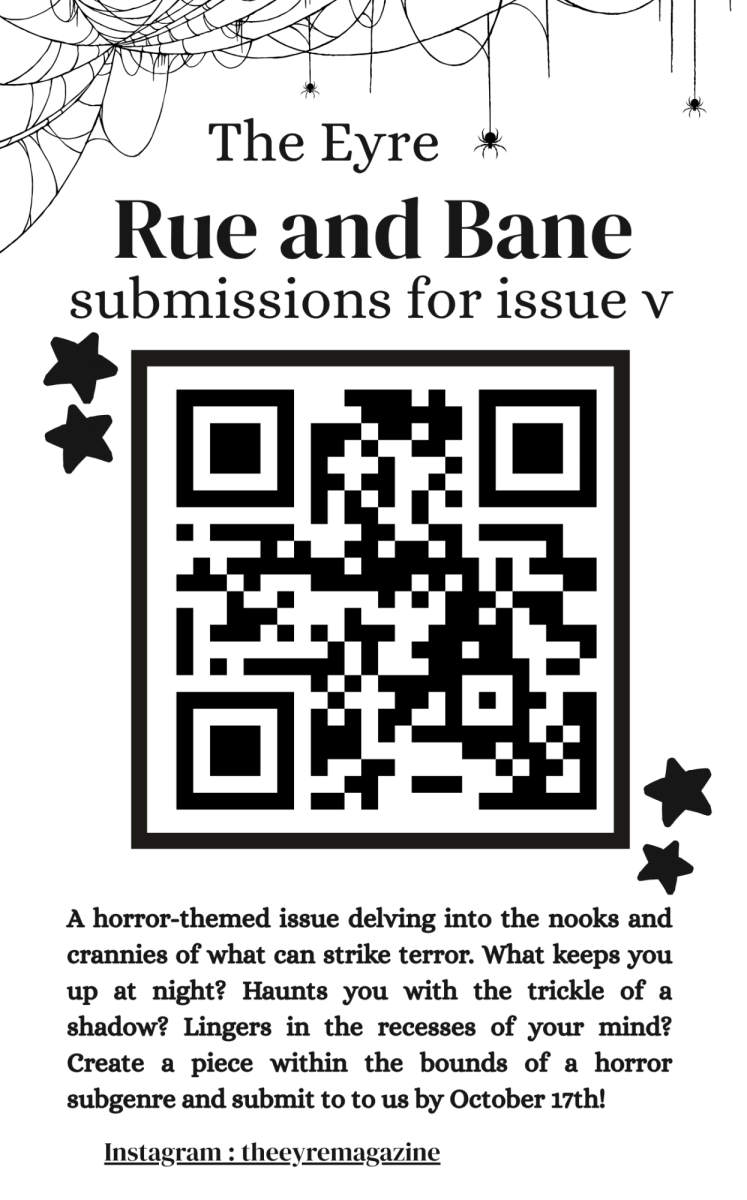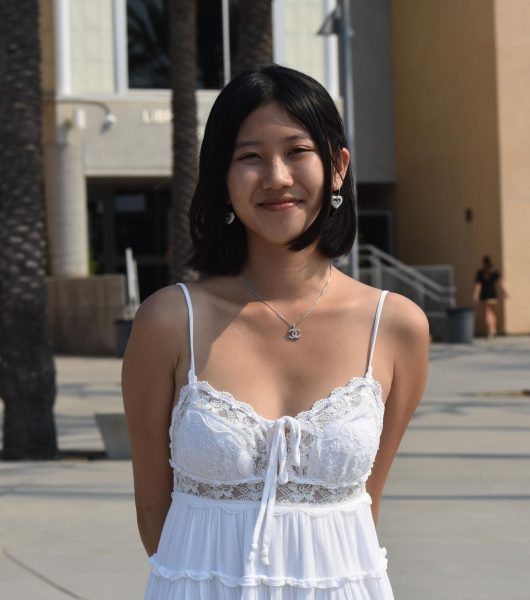Science teacher Dawn Hester has always had enthusiasm for learning. Whether it was watching her robotics students build and program machines out of nothing more than loose parts or teaching her physics and engineering classes the innovation borne out of each perspective field, it delighted her to see the pursuit of knowledge that so fueled passion and creativity. She dedicates her life to this pursuit, and nothing, she says, could ever stop her from continuing on that path — not even when she was diagnosed with stage two breast cancer in November.
“It was just a routine screening,” Hester said. “When they told me, it was a complete surprise. From then on, everything just happened really quickly.”
Hester said that the doctors had to take action immediately, due to the specific strain of cancer she had and the unique problems it posed.
“The doctors considered this type to be particularly fast-growing and difficult to treat,” Hester said. “It was called triple-negative breast cancer and the cells have a certain type of characteristic that makes them different. So, the doctors wanted to take an aggressive approach to quickly intervene. ”
To eliminate the cancer, her treatment plan would be quite brutal on her body and Hester said she had to make decisions quickly regarding the circumstances.
“The chemotherapy that they have to use is harsh,” Hester said. “With [this type of breast cancer], they couldn’t use a lot of the more advanced targeted drug therapies, so [the treatment] kills a lot of the good cells too. I quickly decided I had to cut my hair so it would still [be able to] be donated while it was healthy. I knew I was going to have to lose it.”
Hester said that although she was following the doctors’ guidance, the whole experience felt surreal and caught her in disbelief.
“I was shocked,” Hester said. “No one in my family had ever had cancer and I kept wondering, ‘How could this happen? [I’m] young, and I have so many things I want to do.’”
However, as she began to let it sink in, Hester said she feels extremely lucky to be in her position above all else.
“As I processed it, I couldn’t help but just feel kind of fortunate,” Hester said. “Everybody has different kinds of challenges they go through, and this was just another one of those. I just felt so lucky that I was able to get into the doctor’s [office] right away and have these routine scans to have caught it so quickly. I have good medical insurance and such amazing doctors [and] support from my friends and family. ”
Throughout the past few months, Hester has maintained that positive attitude as she goes into the doctor’s office weekly for chemotherapy treatments.
“I come in every Tuesday,” Hester said. “I’ve been experiencing some side effects from the treatment and some of the medication they’ve given me, just a little bit of fatigue and nausea, but overall, I’ve been feeling pretty good. It’s none of the more drastic effects, and I feel very grateful for that.”
Hester said that one of her most concerning side effects, however, is her susceptibility to other illnesses due to her weakening immunity.
“I can see it in my bloodwork,” Hester said. “[The doctors and I] look at the lab work every week and I can see that my number of white blood cells is very low. So, I have to be very careful and wear a mask to avoid catching anything.”
Hester has to take many precautions now in her daily life to make sure she stays safe. But, despite it all, she has still continued to teach all four of her classes.
“There was no hesitation at all,” Hester said. “I couldn’t imagine staying at home. [My job is] my livelihood. I look forward to coming to work every day and working with the students. Of course, I had to have a big discussion with my doctors, and they took a lot of extra steps to make sure I could continue to work. They’re giving me extra medicine and self-injections to boost my white blood cells and have given me the okay to come into class. I just can’t imagine my life without teaching.”
Being open with her students was something that Hester did not struggle with. She said that discussing her illness and ongoing treatment was more out of concern for her class and the changes they would have to go through.
“I think if I didn’t say anything, people would have probably been scared,” Hester said. “I had pretty long hair before and I was now wearing hats and masks. It was a drastic change, and I didn’t want people to worry. I wanted to make sure my classes knew they were in the right hands, even if the year was going to be a little different.”
Xochitl Martinez (12), a student in Hester’s Physics C class and Digital Engineering as well as President of the Robotics club, said that Hester’s announcement was shocking.
“I’ve known Mrs. Hester since my sophomore year when I first joined Robotics, and I’ve been so lucky to have two classes with her this year,” Martinez said. “I couldn’t quite process it when she first told us [she had cancer]. That day, I just had to go home and take a minute. I couldn’t do any work for the rest of the day. But, what was more shocking, was that she said she was still going to teach.”
Martinez found herself in a state of disbelief at this news and Hester’s demeanor.
“When she first said she had cancer, I [thought] surely this year was going to be flipped upside down and she was going to take a break, as she should, but Mrs. Hester didn’t, ” Martinez said. “She’s still here almost every single day for her classes and stepping up in Robotics to help with each of our [sections] basically every single day of the week. And, even with everything that was going on, the thing she’s always most concerned and worried about is us and how our education would be affected by this. Her dedication is just amazing.”
In fact, Martinez said that Hester’s commitment to her classes and Robotics has only increased since her diagnosis.
“Even though what she’s going through is so unimaginable for all of us, she’s still working as hard as, if not harder than, before,” Martinez said. “She even stayed after school to help me prepare for my [Physics C] final and put in so many extra hours. She hasn’t backed down and is just brushing off her illness like it’s completely normal, when nothing about the situation is. That’s just what I love about her. She’s so supportive [of her students] in everything that we do.”
To Hester, she said that being with her classes and in Robotics was just the place she was meant to be. She couldn’t even fathom not being there to see what her classes were learning or what her Robotics students were experimenting with.
“It’s so fun to see students problem-solving physics in class and working together,” Hester said. “And they are coming up with such cool things in Robotics this year and attempting new projects that they have never done before. Just being able to witness the strong group of leaders [in Robotics] who are teaching each other advanced techniques and running themselves is something that I just couldn’t miss.”
This sheer fervor for learning spans outside of the classroom to Hester’s treatments as well.
“A lot of the drugs they use for cancer are inspired from nature,” Hester said. “One of the drugs that is used in [my] chemotherapy actually comes from a plant and it’s fascinating [to see how they] derive these proteins from the plant and identify that this particular one kills fast-growing cells. This [concept of] biomimicry, looking for inspiration and solutions from nature, is something I incorporated into the final project of my [Principles of Engineering] class. The science is just so interesting.”
Martinez said that Hester’s attitude towards the cancer was just representative of who she was as a person.
“It’s just such a terrible situation,” Martinez said. “But, with Mrs. Hester, you wouldn’t be able to tell. She’s always finding that silver lining in this huge storm cloud. And when most people wouldn’t be learning in this type of situation, she’s still thinking about the science [behind her treatment] and being amazed by it. I have so much gratitude and respect for her and just being able to have her as a teacher is something that has changed my life.”
Hester said that though the future may seem uncertain, she’ll continue to approach it with a positive mindset.
“Of course, there’s a lot of things to worry about, and we will take it when it comes,” Hester said. “But, I just feel so lucky to have so much support and compassion from my family and students. It’s my personality to look for the positives. I cannot imagine feeling down or having my attitude change, it’s just not me.”





